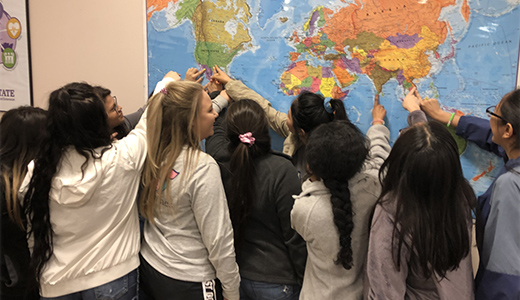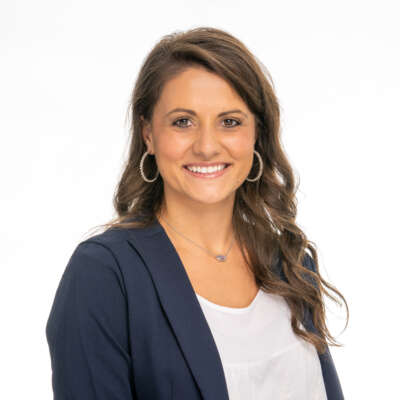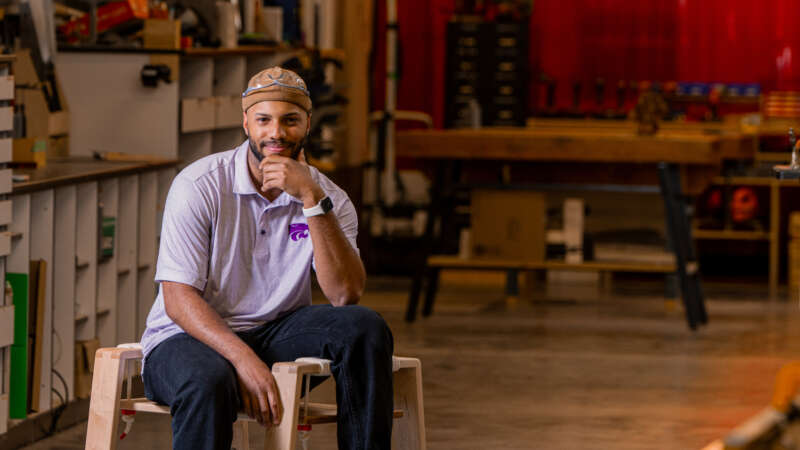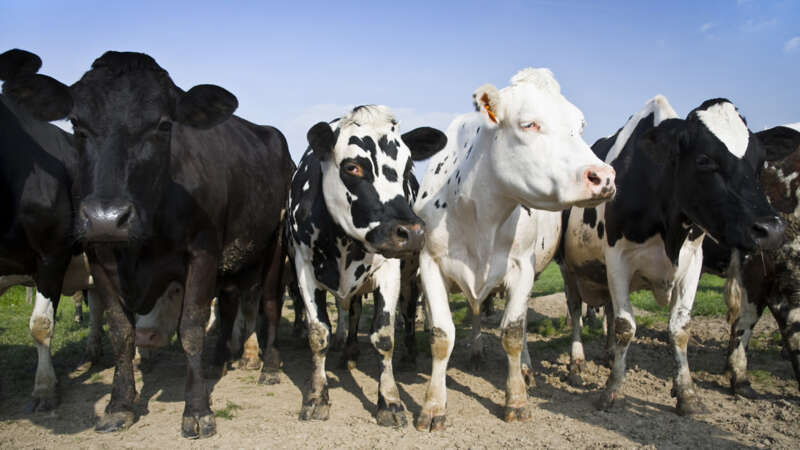K-State faculty member becomes National Geographic Explorer, teaching women of color the importance of culture and geography
To be an explorer does not mean you have to travel far and wide. For Debra Bolton, the director of intercultural learning and academic success at Kansas State University, being an explorer means exploring the world from our backyards.
“I am the very first non-traveling explorer selected by National Geographic. I am an educational explorer, which had never been done before,” said Debra. “My first grant was in 2017, so that I could introduce geographical inquiry concepts and geospatial analysis to females of color in the high school setting and promote geography awareness on public radio stations.” Bolton received funding for a second cohort of what she calls, “Girl Power Geospatial Analysis” from K-State’s Center for Engagement and Community Development.
Debra Bolton became a National Geographic Explorer in 2017 as part of the program sponsored by the National Geographic Society. Since the beginning of the National Geographic Society, the program was created to fund and support scientists, conservationists, educators and storytellers who are curious, committed and passionate about helping and understanding our planet. In 2009, Michael Wesch, professor of cultural anthropology, was also named a National Geographic Explorer, giving two K-State faculty members this distinction. Currently, Bolton is in her second round of funding from National Geographic Society, which pays expenses for presenting her NGS-funded projects at national conferences.
“The National Geographic Explorers explore parts of the world for different areas or disciplines,” Debra said. “From the very beginning, explorers went out and learned about all aspects of humans interactions with their environments in the world. They may be cultural geographers, physical geographers and biological geographers.”
Like so many people, Debra grew up with the National Geographic magazine in her house. “My father was a great lover of National Geographic, and I wish he was alive to know that I am a National Geographic Explorer now,” Debra said. “That is a major point of pride for me and my family because my father loved it so much. He never threw away one of those magazines.”
Debra uses that pride to push her to help young women understand that geography can be more than just maps; it helps you understand the world around you.
“I get to carry the torch of the importance of geography education and to understand it’s not just something that you do, it is something that you live,” said Debra, who was recently named Kansas Geographic Educator of the Year for 2019. “Every human lives geography in the sense that we are always interacting with a space. We all live it.”
Her main goal and focus as an explorer matches her goal at Kansas State University: to teach.
“I worked with teachers at the high school in Garden City, Kansas, and we introduced different concepts, one of them being the idea that geography is not only maps or memorizing state capitals,” Debra said. “Geography can be about cultures, people and how they interact with their environments. We are studying humans in their natural place, no matter where that natural place is.”
She also feels that geography can change the conversation about cultural relations in the United States. “We need to talk about culture. I have noticed that much of the dominant population of the United States does not know that it has a culture,” Debra said. “We forget to think about the traditions of our families and our identities, which make up our culture. Your culture has intersectional identities.”
Even being an explorer, Debra finds that her favorite part of her day is getting to engage with her students. “I work and interact with a wide range of students. I learn so much from them every day,” she said. “I think one of the things that geographic inquiry does is that you not only notice differences, you want to explore those differences. I am always looking at what more I can know about the people I am next to so I can communicate and begin to build a relationship.”
She uses her research to help students understand that the word “international” is not a term that only applies to those from another country beside the United States. “If you think about it, we are all international because we are part of the globe. The U.S. is not the center of the globe,” Debra said.
One thing Debra loves about K-State is the pride that K-State students have in their story, even if they don’t know it. “K-State students all come with different stories; some of them do not know that they have a story. I like pulling their stories out of them,” she said. “I love that I can show them there is more than one truth beyond their own story. I can only hope that my research helps us understand each other as a whole.”








